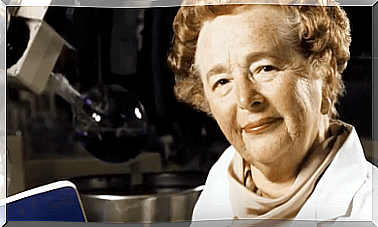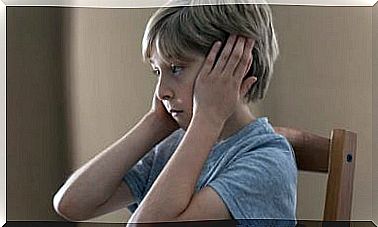The Characteristics Of A Violent Partner

Jealousy, excessive control, and manipulation are some of the characteristics of a violent partner. It is important to know these characteristics to stay alert and avoid falling into a situation of intimate partner violence. At the beginning of the relationship, it may seem that these attitudes arise from a healthy concern for the other person, but certain limits must be imposed to avoid negative situations in the future.
Despite the fact that at the beginning of the relationship some actions may be confused with concern, we must be clear about certain concepts. Not all worry is love. And we must not overlook certain attitudes and behaviors that over time – surely – will increase. Getting into a violent relationship is easy. It is a spiral in which we enter little by little without realizing it. And when we are conscious, we are plunged into a well full of violence and bitterness. That is why it is so important not to overlook certain behaviors of our partner.
Jealousy
It is common for our partner to show a bit of jealousy at some point, but if it reaches the limit of affecting your relationship with friends, co-workers or family, the problem is serious. The symptoms of this situation are: constant questions about your whereabouts, the people you are with or what you do. In the worst case, if your partner is violent, he can prohibit you, question you or limit you in your relationships or outings.

Superiority
Have you noticed that your partner always seems to be right? Does he make all the decisions arguing that you can’t? Well, these are symptoms of verbal abuse and you are the victim. Usually people who exert violence on their partner are quite insecure and need to demonstrate superiority over others to regain some of the security they require.
Control
An abusive or violent partner will flaunt the control they have over you. It may be that it demands your full attention and little by little it distances you from the rest of your acquaintances. In addition, the control can also cover your finances, access to the car, recreational activities and, in general, any situation that limits your independence and personal strength. If you find yourself in this situation, it is important that you regain control soon. Remember that you can always go to the psychologist.
Handling
Have you ever felt like you’ve done something you really didn’t want to do? Was this because your partner led you to it indirectly? In this case we are talking about manipulation, an art that violent couples handle very well. It is common for these people to use hurtful language to achieve their goals and justify their actions.
Many promises, zero actions
Ultimately, an abusive partner will make a lot of promises to you that they usually won’t keep. This attitude is greatly complemented by manipulation, as he will always try to make you believe that he is doing his best to change. If it is difficult for you to get away from these types of people, ask yourself this: how many times has he promised to change and how many times has he delivered?

Stay away from the violent partner
If you realize that your partner has some or all of these characteristics, it would be recommended that you move away or divorce. Many people who enter into a situation of violence do so believing that they will be able to change the other person. However, this is usually totally false and all they achieve is to become victims. Remember that you cannot make anyone change, for this it is necessary that the other person really wants it.
Consequences on the children of a violent partner
We must not forget that there may be children in a couple and that they also suffer the consequences of partner violence. In an investigation carried out by Vargas Murga (2017) she throws light on these consequences:
- Physical consequences: growth retardation, neuropsychological disorders, sleep and eating disorders, delayed motor development.
- Emotional disturbances: depression, anxiety, low self-esteem, post-traumatic stress disorder.
- Cognitive problems: language delay, school absenteeism, school failure, deficits in attention and concentration, difficulties in school integration.
- Behavioral problems: lack of social skills, aggressiveness, immaturity, delinquency, addictions to psychoactive substances.
Thus, we see how violence in a couple does not only harm the two involved, but also affects the children, if any. That is why it is so important to root out all this type of behavior through education in respect and equality.









